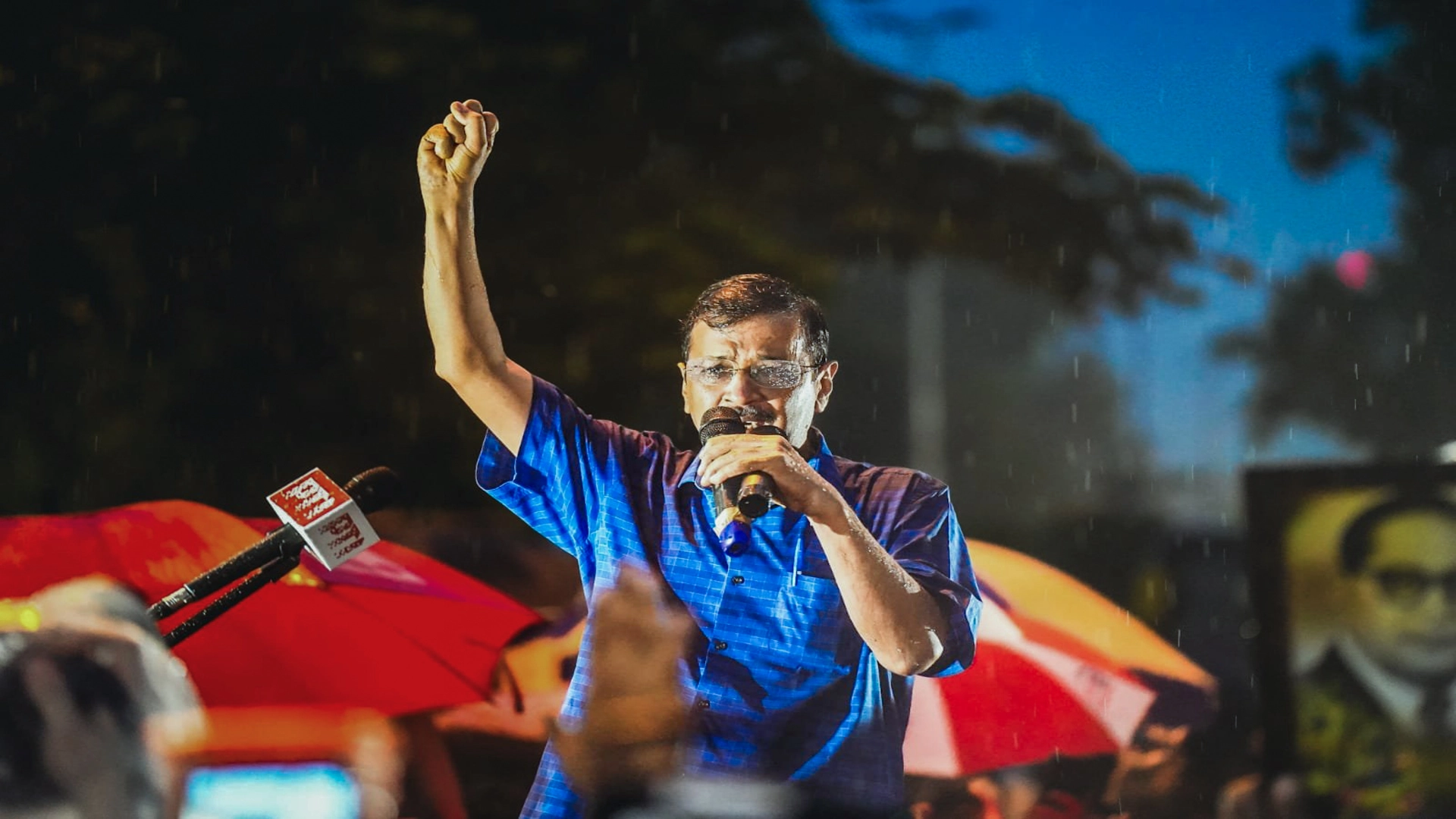Delhi Chief Minister Arvind Kejriwal, who was granted bail today by the Supreme Court. This case, tied to allegations of corruption in the implementation of Delhi’s liquor policy, has been a significant political issue in India. The bail comes with conditions that Kejriwal must follow during his time out of custody.
Kejriwal thanked his supporters who cheered for him as he walked out of Tihar Jail on Friday.
WATCH:
#WATCH | Delhi CM and AAP national convener Arvind Kejriwal released from Tihar Jail
The Supreme Court granted him bail in the Delhi excise policy case today pic.twitter.com/xacY3zo9fO
— ANI (@ANI) September 13, 2024
The Delhi excise policy case has been a significant issue in Indian politics, involving allegations of corruption and mismanagement in the implementation of the Delhi government’s liquor policy.
Below is a chronological breakdown of key events:
1. Introduction of the Excise Policy (2021)
In November 2021, the Delhi Excise Policy 2021-22 was introduced by the Delhi government, aimed at increasing state revenue, ensuring equitable liquor distribution, and improving customer experience. It also involved the government exiting the retail liquor business, leaving it to private players.
2. Allegations and Investigations (July 2022)
By mid-2022, allegations of corruption surfaced, claiming that undue benefits were given to liquor licensees, leading to significant revenue loss for the state. The opposition parties, including the BJP, accused Delhi’s ruling Aam Aadmi Party (AAP) of financial irregularities.
The Central Bureau of Investigation (CBI) began probing the policy after a recommendation from Delhi Lieutenant Governor Vinai Kumar Saxena in July 2022. Saxena raised concerns about procedural lapses and suspected corruption.
3. Arrest of Key Figures (August 2022)
In August 2022, the CBI arrested Manish Sisodia, the Deputy Chief Minister of Delhi, who was one of the architects of the excise policy. This marked a turning point, with Sisodia being accused of manipulating the policy to benefit liquor cartels in exchange for kickbacks.
4. Withdrawal of the Excise Policy (August 2022)
As the controversy escalated, the Delhi government withdrew the Excise Policy 2021-22 in August 2022, reverting to the old regime for liquor distribution. This was seen as a political move to contain the damage caused by the allegations.
5. Sisodia’s Arrest and Charges (2023)
After Sisodia’s arrest, the Enforcement Directorate (ED) launched its investigation under the Prevention of Money Laundering Act (PMLA). The CBI and ED filed multiple chargesheets, accusing Sisodia and other officials of financial misconduct.
6. Arvind Kejriwal’s Involvement (2023-2024)
Delhi Chief Minister Arvind Kejriwal was named in the investigation, though he was not arrested immediately. The case intensified politically, with AAP accusing the central government of targeting its leaders for political reasons.
7. Bail for Key Figures (2024)
On September 13, 2024, Arvind Kejriwal was granted bail by the Supreme Court in the excise policy case. This followed similar bail grants for other key figures involved in the case, such as Manish Sisodia.
The case continues to generate political and legal repercussions, with ongoing investigations by the CBI and ED.







